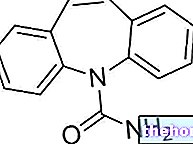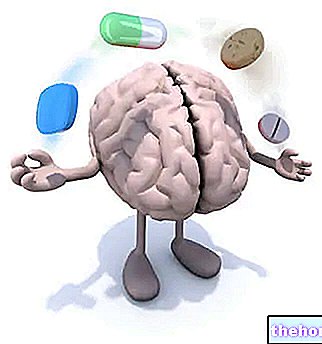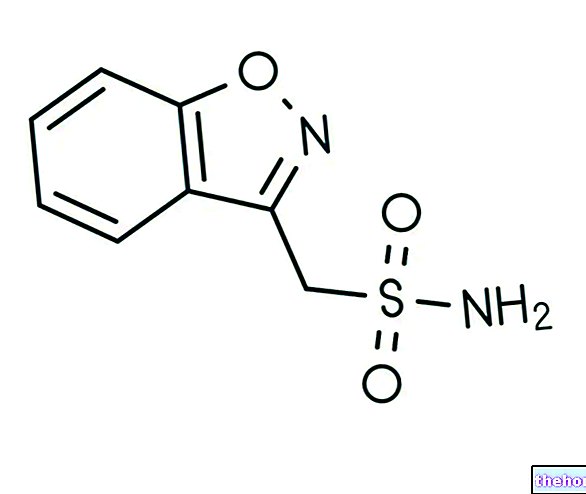Definition
It would not be entirely correct to speak of metabolic syndrome as a single and well-defined pathology: more precisely, it is a pseudo-pathological condition characterized by the concomitance of several disorders, such as increased blood sugar, hypercholesterolemia, hypertriglyceridemia and hypertension.
Metabolic syndrome increases the risk of cardiovascular disease, diabetes, stroke, and fatty liver.
Causes
Given the complexity of the condition, the causes of origin are multiple and heterogeneous. Among the most recurrent etiological elements, we remember: unbalanced diet, insulin resistance (the most involved element, responsible for the propensity to diabetes, hypertriglyceridemia, hypertension), obesity, genetic predisposition, sedentary lifestyle.
Symptoms
As can be guessed, the typical symptoms accompanying the metabolic syndrome have purely metabolic consequences: increase in blood pressure (min.> 85mmHh, max.> 130 mmHg), increase in blood glucose, increase in blood triglycerides and decrease in high lipoproteins density ("good cholesterol"), overweight / obesity.
- Complications: destruction of pancreatic beta cells and diabetes mellitus, cardiovascular disease, kidney failure, vision changes, liver disease.
Diet and Nutrition
The information on Metabolic Syndrome - Medicines for the Treatment of Metabolic Syndrome is not intended to replace the direct relationship between health professional and patient. Always consult your doctor and / or specialist before taking Metabolic Syndrome - Medicines to Treat Metabolic Syndrome.
Medicines
The best cure for metabolic syndrome is prevention: even in this case, it seems that there is no better drug than a balanced diet combined with a correct lifestyle, essentially based on "increasing sports activities and reducing body weight, above all. for overweight patients.
Unfortunately, a sedentary lifestyle, laziness and a good fork seem to be the preferred habits of the population; it should be emphasized again that sport, the practice of simple physical activities and the correction of dietary habits are indispensable therapeutic measures to avoid the metabolic syndrome. Just to give an example, sport prevents cardiovascular diseases, increases the sensitivity of cells to insulin, keeps blood sugar constant, prevents the onset of hypertension and keeps body weight under control.
If the change in lifestyle - intended as a correction of eating habits and the implementation of physical activities - is not sufficient to hinder the onset of the metabolic syndrome, drug therapy can be an excellent aid: drugs for the treatment of " hypertension, drugs to lower cholesterol and triglycerides, drugs to reduce blood sugar.
Patients with metabolic syndrome should stop smoking and reduce weight if necessary.
The following are the classes of drugs most used in therapy against the metabolic syndrome, and some examples of pharmacological specialties; it is up to the doctor to choose the most suitable active ingredient and dosage for the patient, based on the severity of the disease, the state of health of the patient and his response to treatment:
Antihypertensives: we have seen that the metabolic syndrome is often accompanied by an increase in blood pressure; therefore, the doctor can prescribe diuretic drugs, beta-blockers, ACE inhibitors and calcium channel blockers. The most commonly used for the treatment of hypertension are the diuretics and beta blockers, such as:
- Spironolactone (eg Aldactone, Uractone, Spirolang): the drug belongs to the pharmacological class of potassium sparing. The posology for the treatment of hypertension is very variable (50-200 mg per day) and must be established by the doctor on the basis of the patient's blood pressure.
- Hydrochlorothiazide (eg Rasitrio, Esidrex): thiazide diuretic drug. It is recommended to start therapy for hypertension by taking a drug dose of 25 mg once a day. Maintenance dose: it is possible to increase the dosage by 50 mg, to be taken orally, even in two divided doses. Consult your doctor.
- Acebutolol Hydrochloride (eg Prent, Sectral): the drug belongs to the class of beta blockers, useful for the treatment of hypertension also in the context of metabolic syndrome. Indicatively, take a 200 mg tablet of the drug, preferably before breakfast. It is possible to gradually increase the dosage up to a maximum of 400 mg per day.
- Carvedilol (eg Colver): another beta blocking drug, indicated for the treatment of hypertension associated with metabolic syndrome. It is recommended to take two tablets (for a total of 12.5 mg) per day for the first two days of treatment; subsequently, take 25 mg of active, in a single dose, up to a maximum of 50 mg (divided into two doses). Consult your doctor.
For further information: see the article on drugs for the treatment of hypertension.
Antidiabetics: the presence of abnormal antibodies directed against the beta cells of the pancreas causes diabetes mellitus (type 1); in this case, the patient will have to take insulin (via injections under the skin). Oral hypoglycemic agents are generally indicated only for the treatment of type 2 diabetes mellitus, which is common in patients with inadequately treated metabolic syndrome. When the disease is diagnosed early, it is sometimes possible to reverse diabetes (prediabetic phase); otherwise, the patient will have to take hypoglycemic drugs or - in severe cases - insulin for life.
There are several types of insulin, essentially classified on the mode of action:
- ultra-fast acting insulin (Insulin Lispro and Insulin Aspart)
- fast-acting insulin (e.g. Actrapid, Insulin Human Winthrop, Insuman Rapid)
- Intermediate-acting insulin (e.g. Insuman Basal, Monotard)
- Slow / ultra-slow insulin (eg. Ultraretard)
- Insulin Glargine (eg. Lantus, Optisulin)
- Insulin and protamine (eg Protaphane)
The choice of one type of insulin rather than another depends on the severity of the condition and the patient's needs. Consult your doctor.
For further information on oral hypoglycemic agents and insulin: read the article on drugs for the treatment of type 1 diabetes mellitus and on drugs for the treatment of type 2 diabetes mellitus
Anticolesterolemic agents: anti-cholesterol drugs are useful when the correction of eating habits and lifestyle is not sufficient to regulate the levels of "bad" cholesterol in the blood. The drugs most used in therapy are statins, fibrates, niacin (in high doses), bile acid sequestering drugs and ezetimibe. Here are some examples:
- Simvastatin (eg Zocor, Simvastat, Omistat, Quibus, Setorilin). The active ingredient belongs to the class of statins, drugs widely used for the treatment of high cholesterol. It is recommended to start treatment for the treatment of hypercholesterolemia in the context of the metabolic syndrome with a dose of drug ranging from 10 to 20 mg, to be taken orally, once a day. The maintenance dose is to take 5-40 mg of active, once a day, in the evening. Sometimes the drug is associated with other active ingredients, such as sitagliptin (eg. Juvisync), useful for fighting diabetes in the context of "hypercholesterolemia, and" ezetimibe (eg. Vytorin).
- Gemfibrozil (eg. Lopid, Genlip, Gemfibrozil DOC): in general, for the treatment of hypercholesterolemia in the context of the metabolic syndrome, the normally recommended dosage is 600 mg of active, to be taken orally, twice a day, preferably 30 minutes before breakfast and dinner.
- Pravastatin (eg Selectin, Langiprav, Sanaprav). Indicatively, for the treatment of hypercholesterolemia in the context of the metabolic syndrome, take the drug at a dosage of 40 mg, orally, once a day. For the maintenance dose, it is possible to take 40-80 mg of the drug per day. Consult your doctor. The drug can also be formulated with other active ingredients, such as acetylsalicylic acid, an antiplatelet agent: the two active ingredients exert their therapeutic activity in synergy, both for the treatment of high cholesterol (pravastatin), and for treat and prevent ischemia and myocardial disorders.
For further information: see the article on drugs for the treatment of high cholesterol.
Medicines to quit smoking
Everyone knows how smoking is a "wrong habit; yet, it seems that giving up this habit is not one of the good intentions of heavy smokers. In any case, smokers who show a marked propensity for metabolic syndrome should quit smoking," since smoking increases the risk of cardiovascular disease. In case the patient is unable to give up the habit, some drugs can be a valid help:
- Bupropion hydrochloride (eg Elontril, Wellbutrin, Zyban): start the treatment by taking 150 mg of active orally, once a day. Maintenance dose: the dosage may increase up to 300 mg per day (administered in two divided doses during the day), but not earlier than three days after the start of therapy.
- Varenicline (eg Chapmix, 25-28-56 tablets): take 0.5 mg of active orally once a day in the first three days of treatment to stop smoking. From the 4th to the 7th day of therapy, increase the dose to 0.5 mg of active twice daily. From the eighth day onwards, take 1 mg of active twice a day.
- Nicotine based patches for quitting smoking (eg Nicopatch): generally, apply one patch a day, on dry, cleansed skin; the patch should be applied to the arm, or to an upper part of the body, always trying to place it in a different place, to avoid local irritation.
Anti-obesity drugs: Obese patients who are unable to obtain benefits in reducing their body weight can find help by taking certain drugs. In fact, obesity is one of the risk factors for the metabolic syndrome. Orlistat and acarabose are two drugs particularly suitable for treating obesity in the context of the metabolic syndrome:
- Orlistat (eg. Xenical, Alli): the drug (lipase inhibitor) is indicated as an adjuvant in low-calorie diets: it is the drug of choice in the treatment of obesity, together with Sibutramine (until a few years ago). Indicatively, the drug should be taken at a dose of 120 mg, orally, three times a day, during a meal or no later than one "hour after its end. It is recommended to take a multivitamin supplement (eg. Multicentrum, Supradyn, Be- Total Plus) in association with orlistat: this drug, in fact, hinders the absorption of some nutrients and vitamins essential to the body for its proper functioning.
- Acarbose (eg Glucobay, Glicobase): indicatively, it is recommended to take half a tablet (corresponding to 50 mg) 3 times a day, together with the meal. The posology should be progressively modified on the basis of the patient's response to treatment. Consult your doctor. This drug is widely used to treat certain disorders of the metabolic syndrome, such as obesity and diabetes.
For further information: read the article on drugs for the treatment of obesity
Other articles on "Metabolic Syndrome - Drugs to Treat Metabolic Syndrome"
- Metabolic syndrome
- Diet and metabolic syndrome
- Metabolic syndrome and lifestyle
- Metabolic syndrome and nutrition
- Metabolic syndrome and insulin resistance
- Metabolic syndrome: whose fault is it?




























